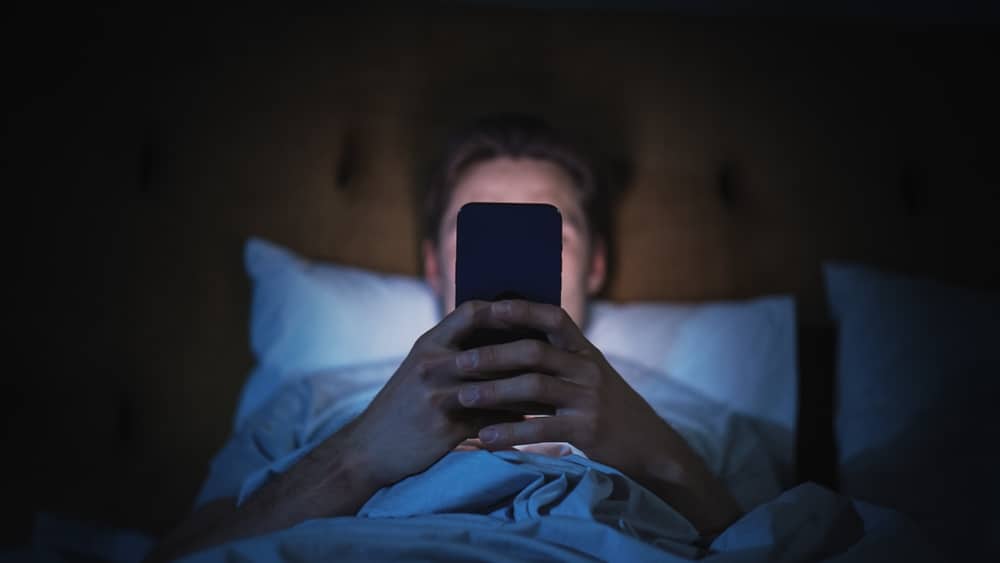Experts are raising fresh concerns that parents’ attachment to their smartphones may be sending a silent yet damaging message to their children—one that can influence their emotional well-being well into adulthood.
The behaviour, now widely known as phubbing, combines the words “phone” and “snubbing” to describe the act of ignoring someone physically present in favour of a phone screen. The term first emerged in 2012 during a “Stop Phubbing” campaign, which sought to highlight the growing tendency for people to disengage from face-to-face interactions. While at first it may have seemed like a quirky modern term, experts now warn that its consequences—especially within families—are anything but trivial.
Psychologist Mary Alvord, co-author of Conquer Negative Thinking for Teens, says children can be particularly sensitive to the subtle rejection phubbing communicates. “He or she may think they are insignificant,” Alvord explained in an interview with Very Well Mind. “When children begin to think this way, they often isolate themselves. They will also overcompensate negatively or positively to get any type of attention.”
That perceived insignificance can be the seed of deeper emotional struggles. For younger children, especially, it’s not just about feeling momentarily ignored—it’s about forming a lasting belief that they are less important than whatever is happening on a parent’s phone. Over time, this can lead to anxiety, low self-esteem, and even depression.
Research backs up these concerns. One study published in the National Library of Medicine examined the effects of emotional neglect in the home and found that children who experienced higher levels of neglect were significantly more likely to show depressive symptoms by the time they turned 18. Interestingly, the same study found that strong, consistent social support from friends could help offset some of those effects, suggesting that while peer relationships are important, they can’t fully replace the bond and attention children seek from their parents.
The problem is compounded by the fact that smartphones have become more than just communication tools—they are now integral to how many people organise and manage their daily lives. Alvord notes that parents often rely on their phones for everything from calendars and reminders to news and social connections. “Parents rely on the convenience of smartphones… thus creating a sense of dependence,” she said. “We often hear parents comment that they ‘can’t go anywhere’ without their phone.” While the functionality is undeniably useful, that constant presence can make it harder for parents to put their devices down, even during moments that matter most to their children.
But phubbing’s impact isn’t confined to parent-child relationships. Multiple studies have shown that it can weaken bonds in romantic partnerships, friendships, and even work relationships. In one survey conducted by Faruk Caner Yam at Gaziosmanpaşa University in Turkey, participants who reported frequent experiences of being “phubbed” by their partners also reported lower relationship satisfaction and a poorer sense of connection. “Being too busy with smartphones during a romantic relationship harms satisfaction,” Yam concluded. “It is very important to raise awareness of couples about smartphone use during their relationships.”
This suggests a broader truth: when a person chooses a phone over the individual in front of them, whether that person is a child, a spouse, or a friend, it can leave the other feeling dismissed or undervalued. Even if the intention isn’t to reject, the repeated action can send a message that the relationship isn’t a priority. Over time, that erosion of connection can create emotional distance that’s hard to repair.
Experts say the solution isn’t about eliminating phone use entirely—that’s neither realistic nor necessary—but rather about setting conscious boundaries. Small, intentional changes can make a big difference. Parents might designate “phone-free zones” at the dinner table, during bedtime routines, or while engaging in family activities. Couples can agree on phone-free periods during conversations or date nights. Even making a habit of putting the phone out of reach during important moments can help.
It’s also worth remembering that children often model their behaviour on what they see. When they observe parents choosing direct, attentive interaction over screen time, they learn the value of presence and empathy. Conversely, if phubbing is the norm, they may grow up thinking it’s acceptable to give divided attention—or worse, to expect it from those they care about.
The occasional glance at a notification is unlikely to cause harm, but consistently placing a phone between yourself and the people you love can chip away at intimacy, trust, and emotional security. In a time when constant digital connection is the norm, perhaps the more radical—and rewarding—choice is to look up, make eye contact, and be fully present.
Because in the end, while our phones can hold a world of information, it’s the people sitting right in front of us who make that world worth living in.






